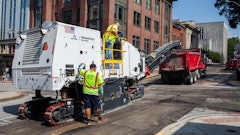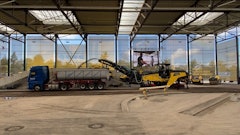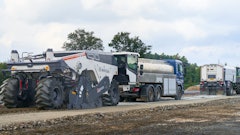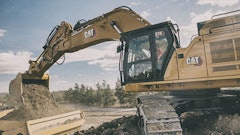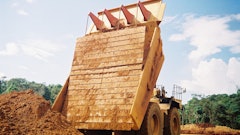
Construction waste comes in many forms. From scrap materials such as wood, brick, metal and asphalt during construction to broken glass, concrete and rocks during demolition. Some of these materials can contain dangerous asbestos, mercury, lead and other chemicals. Workers shift much of this waste to a specific area of the construction site while they are working to deal with the debris later. Unfortunately, many contractors and professionals are unprepared for how they plan to manage this waste.
A study has found that roughly 75.71% of companies don't have a dedicated professional to manage the waste, while only 57.14% of contractors continually measure the volume of material waste that becomes generated at the site. When this waste enters the environment, it can pollute land and water resources while increasing the exposure to workers.
People can also experience serious health problems including respiratory issues as well as fatal diseases. Taking the following proactive steps throughout the construction site can reduce the environmental impact of construction waste while keeping workers safe.
Developing a Construction Waste Management Plan
A waste management plan is a detailed report regarding the work activities that will create waste. It estimates the amount of waste that will be created; goes into detail about the types of waste; provides ways to minimize the creation of this debris; and offers steps on how to properly store and dispose of materials.
The plan should assign job roles to workers to ensure waste is cleaned up from areas in a timely manner to prevent accidents and where to place the materials. It provides lists of what building materials will be brought to the site and explains safety policies on how workers should protect themselves when handling dangerous materials and chemicals.
Hire Waste Management Vendors
Once you know what types and the amount of waste that will be present at the construction site, you can hire the appropriate waste management vendors. Vendors can vary based on what materials they handle, such as household appliances, organic waste, yard waste, construction demolition, materials for recycling and hazardous materials. You can then rent a garbage dumpster to handle that specific material.
Always have workers double-check the materials that go into dumpsters to keep materials treated with chemicals separated from untreated debris. For example, you may have a vendor that takes untreated wood to turn it into mulch. You do not want to mix treated wood with the untreated wood.
Reuse Materials When Able
Reusing materials can significantly reduce the amount of waste taken to a landfill. You may have materials that are often used throughout the construction process, such as untreated wood, rocks, bricks, plastics, drywall, metal and other construction items. When reusing scraps, it can lower the number of whole materials used, which can significantly save on money, waste and disposal time.
Designate a place — such as an on-site storage container or taped area — to store cutoffs and scraps. In addition to using these scraps during the construction of structures, you can get creative about using pieces afterward for property decorations. You may have a homeowner who wants to lay pieces of broken brick to outline flower beds alongside the house or an extra scrap of carpet as an indoor floor mat from the garage to the house.
Recycling Bins for Materials
Common materials that can be recycled include wood, glass and metal. These materials are 100% recyclable. Depending on the construction site, you may not have the available space to have dumpsters for each type of material. While separation on-site is the easiest method, you may opt to place all the recyclable materials into a single dumpster and then take the dumpster off-site to separate the materials or hire a vendor that will do the separation process for you.
It may also be possible to section the dumpster into temporary compartments inside cardboard boxes. For example, you may have glass on one side, metal in the middle, and wood on the other side in the same dumpster.
Recover and Donate Materials
When reusing materials on-site or recycling materials is not an option, you can recover materials and then donate them to community organizations. Instead of demolishing the materials into unusable waste, carefully deconstructing structures can preserve the integrity of the materials enough that they can be successfully used in other places.
For example, a garden shed that is set for demolition but with the materials still in good condition could be deconstructed to be used as a small greenhouse at a school or a storage shed at a recreational center. Broken pavers can be recovered for later use as walkways along garden paths at a conservatory or a retaining wall at a playground.
Donating to community projects allows organizations to obtain necessary materials while saving money. In addition, contractors can gain recognition for donating the materials and work for these projects, which can boost brand recognition and help you gain new clients.
Benefits of Successful Waste Management
With construction waste being a serious problem for 95.71% of projects, finding cost-effective and safe solutions becomes vital for the protection of contractors, workers, the environment and the public. A waste management plan offers a viable way to cut back on waste, assign accountability and help the community. Researching available recycling centers and donation programs allows you to form strong partnerships that are available for every construction project and allows you to assign which materials will go to specific sites.
This plan also helps you and the customer save money. You may cut down on transportation costs when reusing materials and order costs as you will not have to purchase greater amounts of materials for construction projects. Other times, you may obtain tax benefits when donating to charity organizations. You also help with employment opportunities inside your company when hiring a dedicated professional to manage site waste, and outside of your construction company when working with recycling companies.




